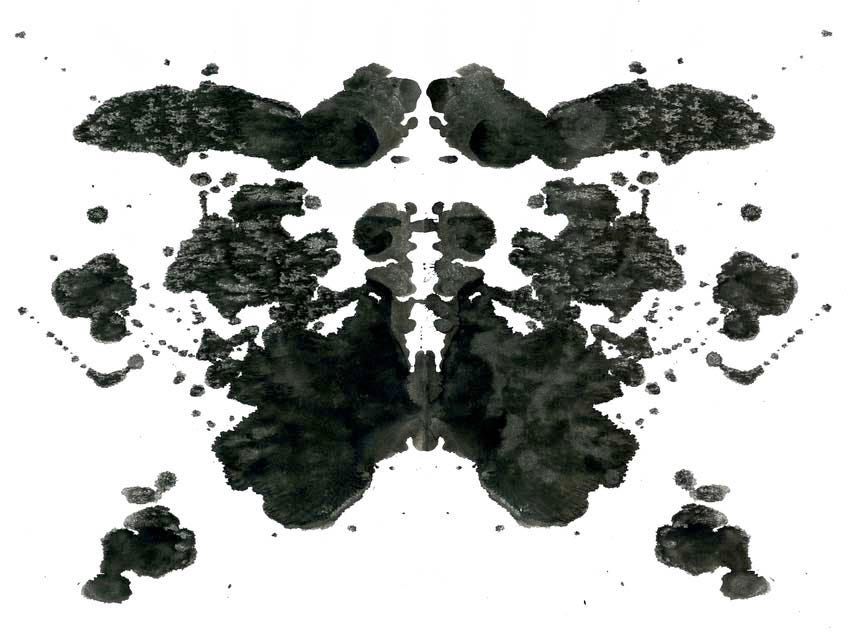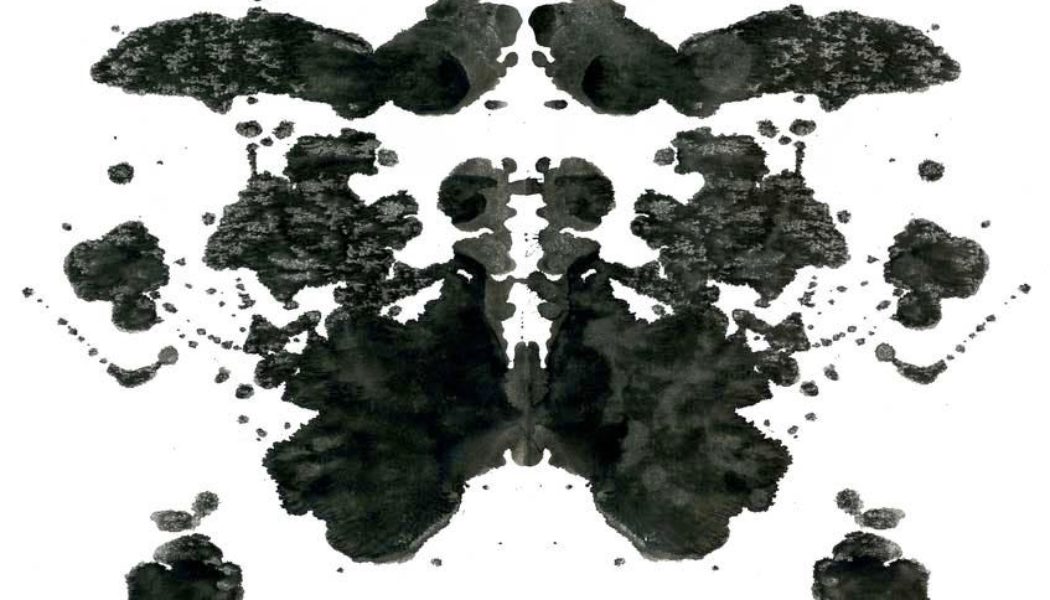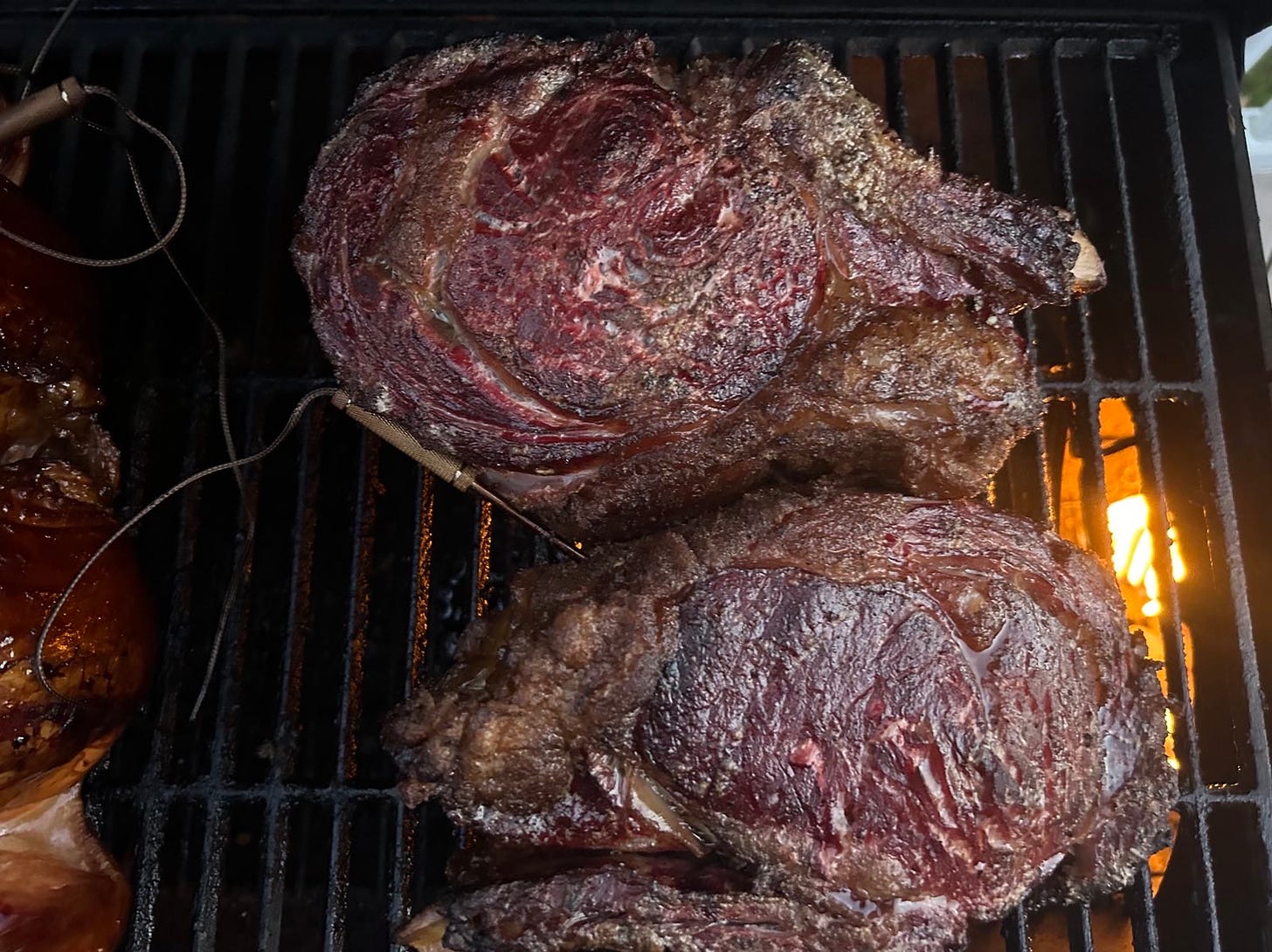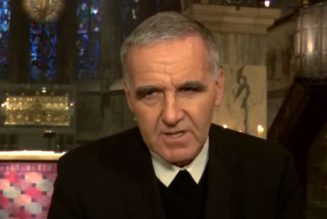Pillar subscribers can hear Ed read this Pillar Post here: The Pillar TL;DR
Happy Friday friends,
I have reached that point in summer where my internal emotional tension has reached its breaking point.
The news cycle slows over August, inevitably. And of human necessity people cycle in and out of the office on vacation. If you have, as I do, a disordered Pelagian disposition towards work as self-justification, this can become more oppressive than restful very quickly.
At the same time, I am acutely aware of the precious summer moments ticking by which I could, maybe should be spending with my daughter.
She’s only two, so it isn’t like there is an all-consuming academic calendar about to swamp the schedule. But she will only be two this summer, and anything I don’t teach her to do myself, or do for the first time with her, I will be essentially ceding to “someone else.”
The extent to which she must be shown how to do everything was borne upon me earlier this week.
My earliest memory, the only distinct one I have from when I was about my daughter’s age, was my dad buying me a Donald Duck sprinkler to run through in the backyard of our apartment block in Roger’s Park. I remember seeing it in its box at the local True Value, and I remember the thrill of joy and disbelief as my dad picked it up from the end-of-aisle display to bring home.
I remember running through its spray in the grass with a purity of emotion I don’t think I fully recaptured until I first held our daughter.
So I assumed, when my wife bought a similar device — whale shaped, in accord with the kid’s current preferences — our daughter would be similarly electrified.
But she wasn’t. When it was first turned on, my wife poked her head in my office to tell me that our daughter was sitting on the grass, watching the thing with sullen indifference.
I went out to see what was what, and was equally confused by what I found.
I tried coaxing her towards the spinning blue whale’s tail, but nothing doing. Eventually, out of frustration, I ran myself through the spray, fully clothed, three times, before turning and daring her to tell me she didn’t want to try.
I watched her face melt from incredulity to wonder. We ended up running a hour’s worth of laps, hand in hand, back and forth through the water. Her little self shrieking with joy.
I would never have believed it if you had told me that one needs to explain to a child how to run through a garden sprinkler, but there you are.
At the same time, she is teaching me, too. Accepting that there can be, just sometimes, somewhere better for me to be than at my desk — and that it will do me more good than any hours’ worth of work — is a lesson I’ve long needed to learn.
That said, I’m at my desk now.
So here’s the news.
The News
The body of Sr. Wilhelmina Lancaster of Gower Abbey appears to “lack any detected features of decomposition,” according to a team of medical experts.
The group, led by a doctor of pathology, were asked to study the remains of the founder of the Benedictines of Mary, Queen of Apostles, at Gower Abbey by Bishop Johnston of Kansas City-St. Joseph after they were discovered to be surprisingly undisturbed four years after her death.
Gower Abbey has become a place of pilgrimage since Sr. Wilhelmina’s remains were exhumed last April, with many crediting her remarkable condition as evidence of her sanctity. The experts’ report isn’t going to do much to dissuade them.
Though, as Bishop Johnston noted, there is no “official protocol for determining if a deceased person’s body is incorrupt, and incorruptibility is not considered to be an indication of sainthood.”
But while no cause for her canonization is open or underway (yet), the bishop accepted that the situation “has understandably generated widespread interest and raised important questions.”
—
Every four years, away from the national spectacle of Democrats and Republicans slugging it out in primetime, a small third-party is tries to woo Catholic voters with a political vision it says is drawn from the principles of Catholic social teaching.
With a growing number of Catholics feeling disenfranchised from major political parties, the American Solidarity Party has tried to sharpen its pitch to voters who can’t find a morally coherent option in either of the main two parties.
Peter Sonski is a Connecticut grandfather, a former local public school board member, and the ASP’s presidential nominee. He says the party promotes human life, social justice, environmental conservation, and international peace.
But he is also a politician, so we can’t just take his word on that.
So JD talked with Sonski this week in a long interview, looking to see if the party’s pitch hangs together as a values proposition.
—
A Capuchin friar was arrested last week on charges of wire and mail fraud, with prosecutors alleging he stole hundreds of thousands of dollars in an elaborate scheme involving several invented personalities, claims of royalty, and phony Lebanese medical clinics.
The local Franciscan province have said they are cooperating fully with law enforcement over the case of Fr. Pawel Bielecki, who spent nearly a decade falsely presenting himself as a physician, and sometimes as a member of two European royal families, in order to raise money for non-existent medical clinics he claimed to operate in war-torn Lebanon.
The details of the story are… well, they are a little incredible.
Members of the Capuchin province have told The Pillar that even they believed Bielecki was actually a physician until the extent of his fraud was revealed.
If you ask me, this case has “Netflix special” written all over it.
—
Cardinal Blase Cupich of Chicago generated controversy this week when he offered the invocation at the Democratic National Convention.
The cardinal’s prayer to open the convention was criticized in large part because of the Democratic Party’s policy commitment to federal legislation enshrining access to abortion – a commitment underscored by Planned Parenthood’s operation of a mobile site offering free abortions and vasectomies during the convention.
But while Catholic leaders have long been leading prayers at political conventions, it’s only in recent decades that they have become the subject of scrutiny.
So, what is the history of cardinals praying at U.S. political conventions?
Michelle La Rosa has a handy pocket history for you right here.
Rorschach’s prayer
Everyone seems to be reflecting on Cardinal Cupich’s little turn before the DNC this week. I confess to seeing the whole thing as a kind of ecclesiastical Rorschach test for American Catholics.
There are, to be sure, many good reasons to question the wisdom (if not the intentions) of a cardinal appearing on stage at an event where actual, literal abortions are being committed, and celebrated from that same stage.
But I think partisan portrayals of the cardinal as a kind of cold-blooded cleric cynically snuggling up to the heat lamp of political power are both unworthy and ungenerous.
Conversely, those celebrating Cupich’s appearance as a kind of sanctification of the Democratic Party’s platform, and a de facto blessing of Catholics voting for what looks to be the most radically anti-life agenda yet articulated, seem to be similarly divorced from good faith and reality.
All this being said, though, the event does say something about where we in America have come in the last three decades.
The distance between Bill Clinton’s mid-90s mantra of “safe, legal, and rare” to today’s maxim of “shout your abortion” is both profound in import and minimal in substance. One either thinks the deliberate taking of innocent unborn life is acceptable or one does not. But how apologetic one is or isn’t about it says much about the ambient inhumanity of our public discourse.
By the same token, how visceral our reaction to this change is (or isn’t) says much about how we have been boiled (or not) into insensitivity along with our politics.
It seems noteworthy to me that Cardinal Cupich’s predecessor, Cardinal Joseph Bernardin, turned down the chance to offer the invocation at the same event the last time it was in Chicago, and he was, as a famous proponent of the “seamless garment” approach to the Church’s teaching on life, personally repulsed by the Democratic Party’s embrace of abortion.
It seems significant, too, that Fr. James Martin, a noted political and ecclesiastical progressive in almost all other respects, accepted an invitation to pray at a past DNC, but felt compelled to include an explicit petition for the unborn as he did so.
Cardinal Cupich’s invocation this week stands out to me not because he chose to accept the invitation to make it, nor because he did so using an ecumenical formula. But I did find the enthusiastic neutrality with which he spoke remarkable.
When LA’s Cardinal Mahoney became the first post-Roe cardinal to appear at the DNC in 2000, he said he was there “as a pastor, not a politician; an advocate of values, not candidates.” For all the criticism he attracted for agreeing to offer the invocation, the values he advocated were clearly enumerated in his prayer — “to protect the life and well-being of all people but especially unborn children.”
By contrast, Cardinal Cupich asked the Almighty on the DNC’s behalf, for the “wisdom” to answer “the sacred call of citizenship,” and to “reweave the fabric of America” while cautioning against “moral blindness and fear of the other” and demanding “the courage to imagine a loving future.”
As an exercise in lofty but ultimately hollow rhetoric about “values,” it was a fine, perhaps even singularly appropriate contribution to the event.
But listening to the cardinal’s prayer, I could not but imagine — since I was by implication being asked to join my prayers to his — what exactly he and therefore we were asking God to do for the people gathered in the United Center. That seemed rather nebulous to me.

Perhaps that was Cupich’s intention, articulating a prayer which could be turned into a petition for just about anything. However politically appropriate that might be, it seems to me the opposite of what it is to “lead” an assembly in prayer.
If Cupich’s prayer could be joined by almost anyone praying for almost anything, perhaps it is only natural that it should be so strongly and variously interpreted.
At the risk of asking an obvious if impertinent question, I wonder what the Almighty makes of it all.
One man’s meat
I have not barbequed much this summer, certainly not as much as I had planned.
I should distinguish here between the practice of grilling, the simple passage of meat over open flame, from barbequing, the baroque marination of fleshmeat in smoke, which is equal parts math, craft, and performative masculine bullshit.
The goodness of my intentions, and the sweep of my ambitions, are down in the basement freezer now, suspended, gently reproachful, and ruefully mocking — like a bluff still hoping to be called.
An entire pork belly meant for burnt ends, two prime rib roasts (which on a smoker are my particular specialty), and a 20lb beef clod I bought in a fit of hubris, have become a monument to my failure to deliver.
I’m not, to be clear, some kind of pitmaster.
My talent for barbeque is more enthusiasm than excellence. But there’s an undeniable kind of guilty pleasure to the slow smoking of meat, requiring hours of attendance, gently nurturing a small fire to a low temperature. It leaves you mostly idle, sitting watchfully nearby, but with a definite result that can’t be achieved any other way.
To barbeque properly is to make a sacrifice of precious time — twelve hours or more, depending on what you’re doing. You have to be willing to get up early, work long, and endure the sarcasm of your spouse, who treats the whole thing as a thin excuse for sitting in the garden drinking beer.
It is possible to barbeque selfishly, I suppose. It can be a kind solitary escape. Though done for these reasons the fruits of your labor will be bitterly ironic. If there are any human actions more instinctively communal than the tending of fire and the preparation of food, I cannot think of them.
Barbecuing alone would be both selfish and lonely, and the results are a kind of gluttonous indictment of yourself and a failure to give. But it would also be incredibly frustrating, at least for me; a wasted investment of time and attention, ultimately offered to and for no one.
EB White wrote once that all that he hoped to say in books, all that he ever hoped to say, is that he loved the world — emphasis his own.
As a writer I much admire, it is a statement as simple as it is bold. For a famously introverted man who valued his privacy, that is a hell of an ambition to articulate.
How do you give love, generally, to the whole world? Well, if you’re White, you can write Charlotte’s Web, I guess. Though he was not above writing to love, one man at a time.
One of the books I managed to read this summer was a recently published collection of letters between him and Edmund Ware Smith, an outdoorsman, fellow writer and Maine transplant, and an obvious admirer of EB’s.
At Smith’s instigation, the two struck up a friendship by correspondence which endured for decades. Though, despite living reasonably close to each other, they seem only to have met in person once or twice.
What struck me about their letters, apart from the joy of two very different but very accomplished practitioners of prose, was that Smith was, at times, clearly the more active pursuer of the friendship, with weeks and sometimes months of letters going unanswered, or at least the responses are unpreserved.
At the same time, White seems at points to be willing himself into reciprocal intimacy, insisting early on that Smith address him not as Mr. White but as “Whitey,” and discussing illnesses and familial anxieties with a kind of deliberate sincerity.
Of course, this is my reading of letters between two friends from a different time, both strangers to me, so it comes loaded with a certain amount of projection. But it seems to me White is at times forcing himself to give of himself, reciprocating the sincerity and candor of his correspondent in what is an act of love.
In a much more modest way, I’ve long treated cooking as a way of showing love.
Getting back to my freezer, there is no universe in which my own small family could have consumed it all. Nor would they have thanked me for sinking the hours required for its proper preparation on their behalf.
Really, all that meat downstairs is a hoard of love I started this summer with ambitions to give, and I have failed to give it. Every frozen half pound marks a person I have failed to welcome to my table.
What is the use, practically speaking, of something as labor intensive as pork belly burnt ends? Very little. But the hours spent loafing by the smoker would have been a time I could have given to getting to know the people I should have been feeding with the results — neighbors, teammates, families from the parish.
My meanness isn’t in wasted food, per se. The belly will eventually become an autumnal cassoulet which will keep the household fed for a few days at least. No, I have wasted the chance to offer something of myself, in time and in the effort, to share with those around me.
That is a kind of selfishness. But it is more a sin of sloth, of choosing not to extend myself; despite the impulse to love, it has not animated me. Love, no less than faith, without works is dead.
There is, I know, no shortage of people to whom I could be extending love, ultimately to my own benefit. And the meat locker downstairs shows I know this, and at some point in June I made a commitment to act. That I have not is my loss.
My full freezer is a badge of self-imposed poverty. I need to do something about it before the summer ends.
See you next week,
Ed. Condon
Editor
The Pillar
Comments 24
Services Marketplace – Listings, Bookings & Reviews











